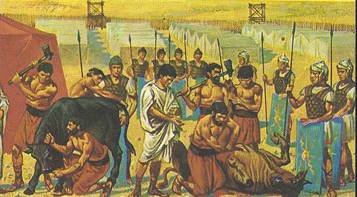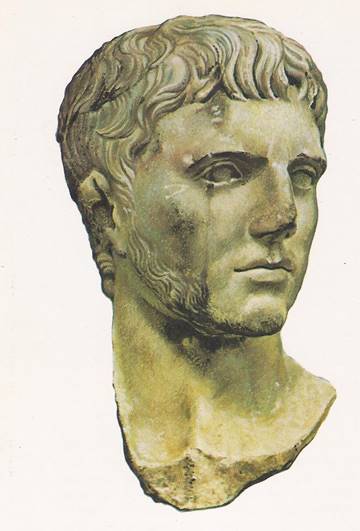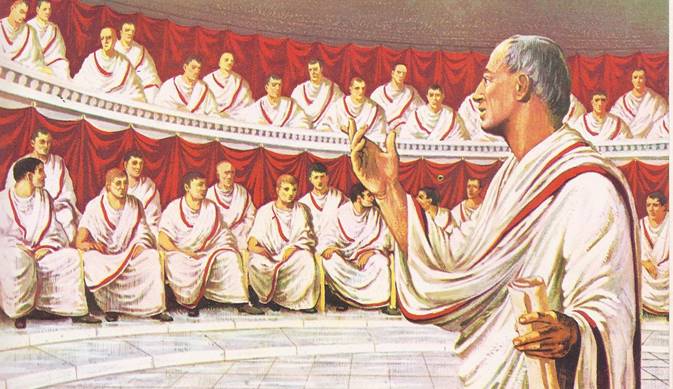GREAT power had allowed Augustus to do great good for Rome and its provinces. The same power in the hands of a man who was not good meant that he could do great harm. This the Romans learned as they watched the remarkable parade of good and evil men who came to govern Rome after Augustus. Some of them were wise, two or three were foolish, one thought he was the greatest artist in the world and another said he was a god. All were the masters of Rome, mighty princes who were called emperors. The title emperor came from imperator, the Roman name for the man who commanded the armies. Every ruler of the empire owed his power to the legions. When he gave an order, his soldiers made certain that it was obeyed. If his orders became too harsh to hear, it was his soldiers who struck him down. Augustus, like Caesar, had named the commander who would take his place when he died. The man he chose was one of his own family, the Caesars. So were the next three emperors. Two of these emperor Caesars were good and two were dreadfully bad. The first, Augustus’ stepson Tiberius, was good, though the city mob did not think so. He treated them with scorn and, worse, he was stingy with his gifts of food and gave them very few shows. The Senate liked him even less than the people did. Tiberius was proud and he made it difficult for them to pretend that they were ruling Rome. Then, one morning, someone overheard him exclaim, as he was leaving the Senate house, “These senators, how ready they are to be slaves!” The senators, who remembered Caesar as well as Augustus, began to plot against the emperor. But he brought …
Read More »









